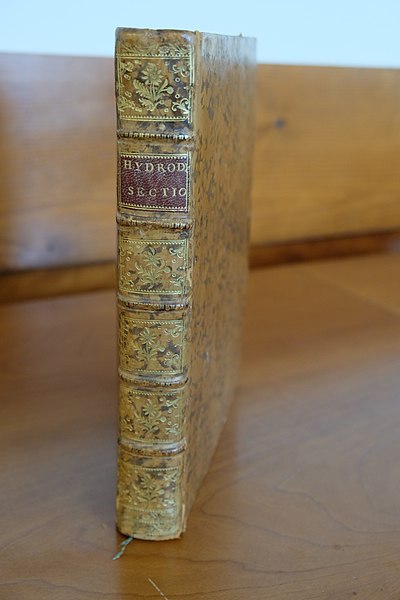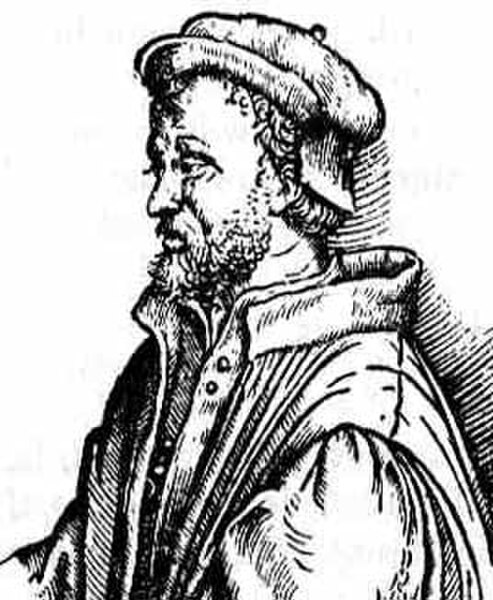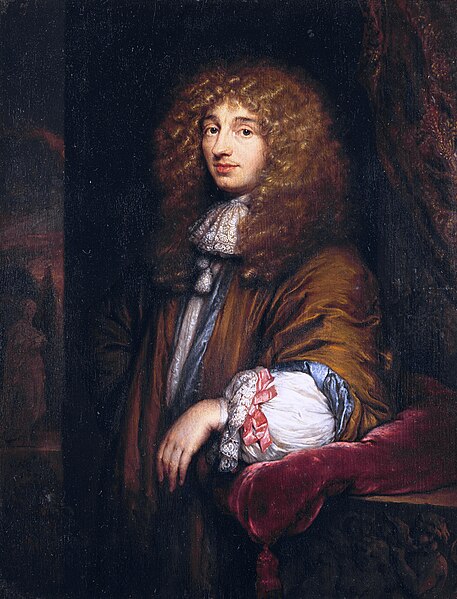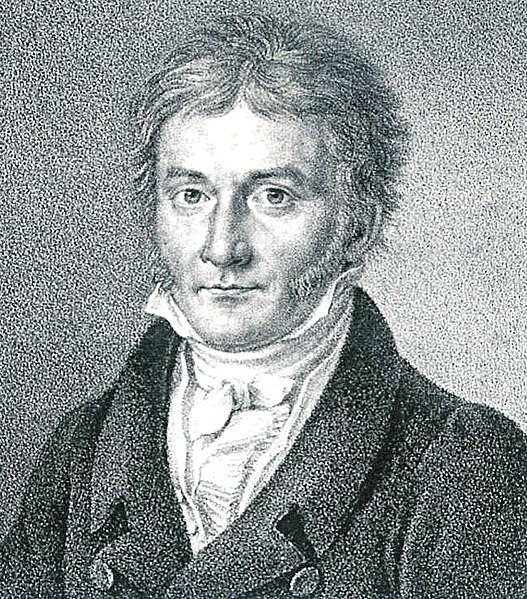Daniel Bernoulli was a Swiss mathematician and physicist and was one of the many prominent mathematicians in the Bernoulli family from Basel. He is particularly remembered for his applications of mathematics to mechanics, especially fluid mechanics, and for his pioneering work in probability and statistics. His name is commemorated in the Bernoulli's principle, a particular example of the conservation of energy, which describes the mathematics of the mechanism underlying the operation of two important technologies of the 20th century: the carburetor and the aeroplane wing.
Portrait of Daniel Bernoulli, c.1720-1725
Daniel Bernoulli
A 1738 copy of Bernoulli's Hydrodynamica
First page of the first section of a 1738 copy of Hydrodynamica
Probability is the branch of mathematics concerning events and numerical descriptions of how likely they are to occur. The probability of an event is a number between 0 and 1; the larger the probability, the more likely an event is to occur. A simple example is the tossing of a fair (unbiased) coin. Since the coin is fair, the two outcomes are both equally probable; the probability of "heads" equals the probability of "tails"; and since no other outcomes are possible, the probability of either "heads" or "tails" is 1/2.
Gerolamo Cardano (16th century)
Christiaan Huygens published one of the first books on probability (17th century).
Carl Friedrich Gauss
Events A and B depicted as independent vs non-independent in space Ω.








